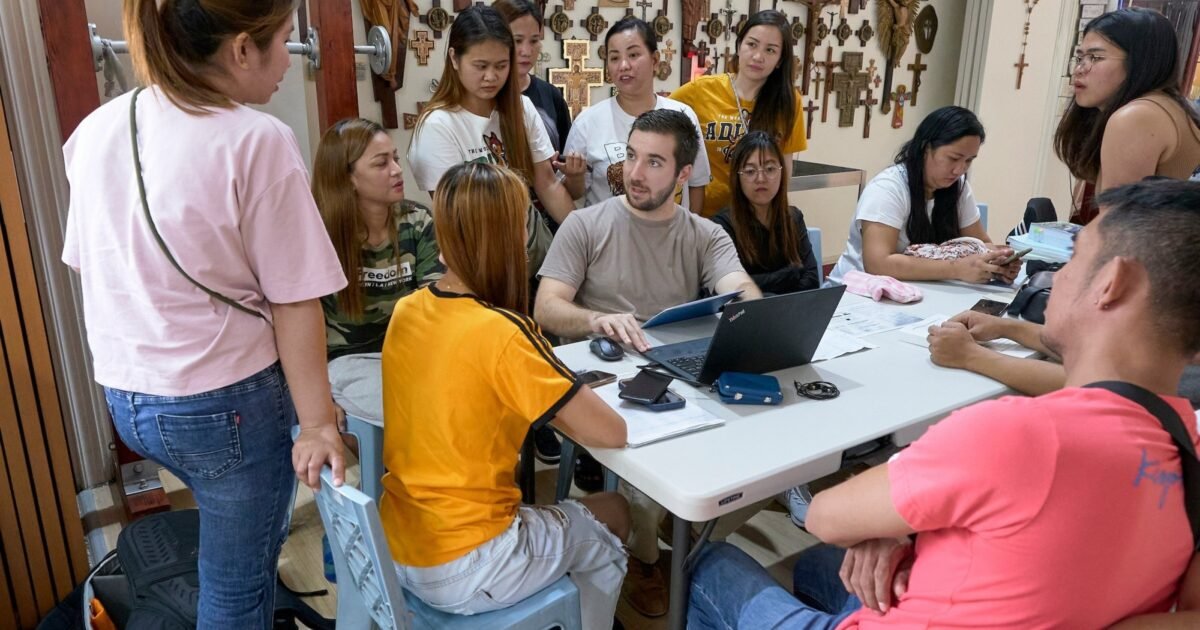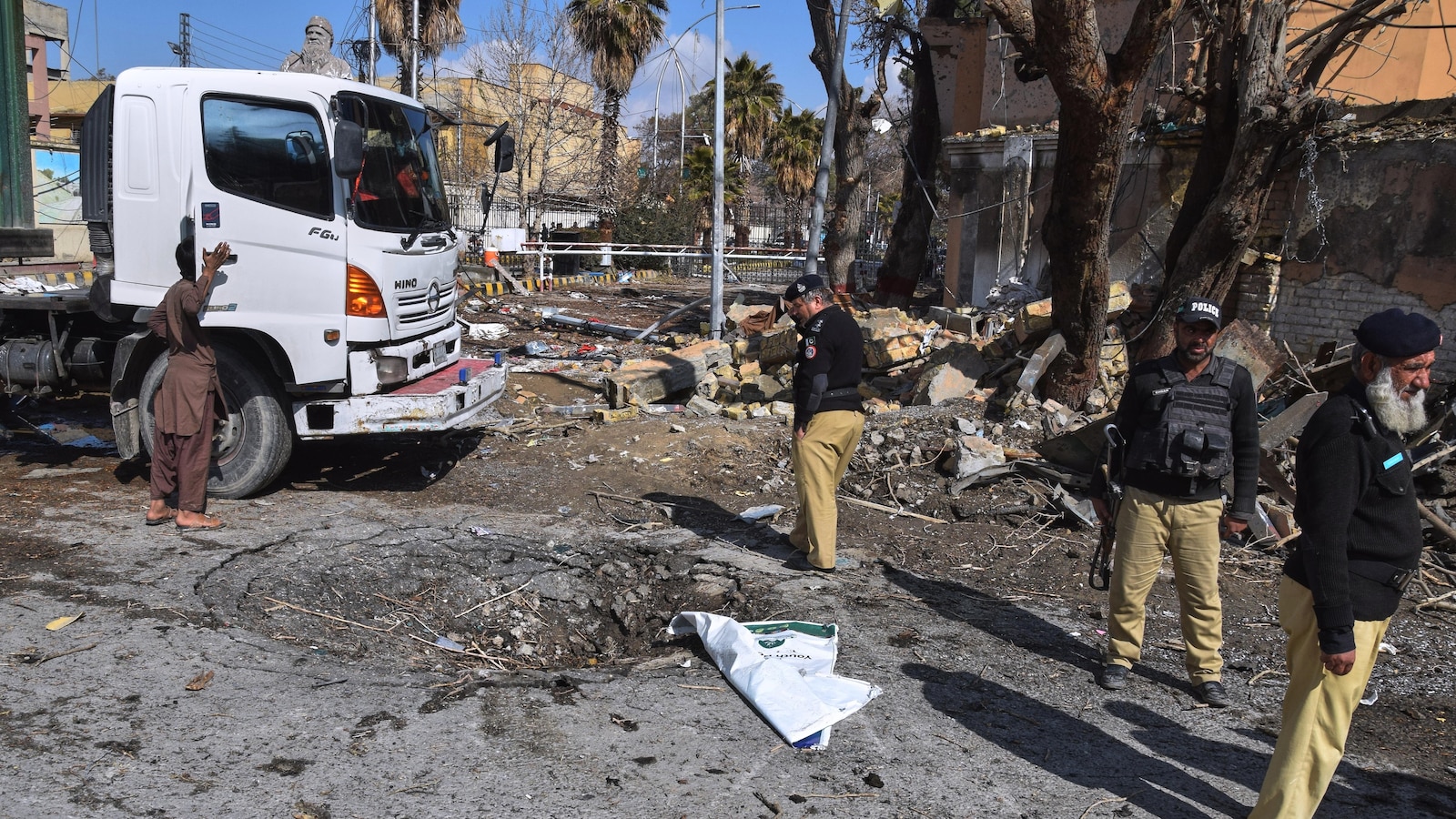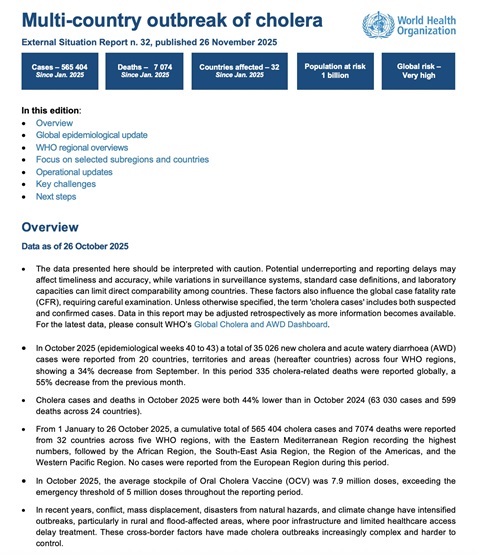Maryknoll missionary trains migrant workers in Taiwan to defend their rights – Detroit Catholic

Report on Corporate Social Responsibility Initiatives for Migrant Workers in Taiwan
Introduction: Advancing Sustainable Development Goals Through Corporate Accountability
An initiative in Taiwan, led by Charles Niece of the Maryknoll Corporate Social Responsibility Office, is leveraging corporate codes of conduct to protect the rights of migrant workers. This report details the methodology and impact of this work, which directly addresses labor exploitation and advances several key United Nations Sustainable Development Goals (SDGs), particularly SDG 8 (Decent Work and Economic Growth).
Alignment with Sustainable Development Goals (SDGs)
SDG 8: Decent Work and Economic Growth
- Target 8.7: The program takes direct measures to eradicate forced labor and modern slavery by challenging illicit recruitment fees, which often lead to debt bondage, and securing the return of workers’ passports.
- Target 8.8: It focuses on protecting labor rights and promoting safe and secure working environments for migrant workers by holding employers accountable for unfair treatment, wage theft, and inadequate living conditions.
SDG 10: Reduced Inequalities
- Target 10.7: The work contributes to safer and more responsible migration by empowering workers to challenge exploitative conditions that arise from their vulnerable status.
- The initiative directly addresses the inequalities between local and migrant workers by demanding that international standards for human rights and labor are applied universally within supply chains.
SDG 16: Peace, Justice, and Strong Institutions
- Target 16.3: By creating a channel for redress outside of often inadequate local government mechanisms, the program enhances access to justice for migrant workers.
- It promotes accountability and transparency in corporate institutions by compelling multinational brands to enforce their own human rights and supplier policies.
SDG 17: Partnerships for the Goals
- Target 17.17: The model exemplifies an effective civil society partnership, where a church-affiliated organization facilitates collaboration between vulnerable workers and multinational corporations to achieve sustainable development outcomes.
Methodology and Implementation
Identifying Violations of Decent Work Principles
The initiative began by identifying systemic labor rights abuses through direct engagement with the Filipino migrant community at the Tanzi Catholic Church. Common grievances documented were clear violations of the principles outlined in SDG 8.
- Withholding of wages and unauthorized bank account deductions.
- Confiscation of passports and other identity documents, restricting freedom of movement.
- Imposition of excessive recruitment fees.
- Substandard and discriminatory dormitory conditions.
Strategic Intervention Model
A multi-step process was developed to hold corporate actors accountable for conditions within their supply chains.
- Documentation: Workers were assisted in systematically documenting evidence of abuse, including reviewing pay stubs, text messages, and bank statements to build a case.
- Leveraging Corporate Policy: These documented cases of abuse were compared against the official supplier codes of conduct and human rights policies of the international companies sourcing from the factories.
- Direct Corporate Engagement: Formal complaints were filed directly with the U.S. and other international brands, bypassing local management and government offices where responses had been inadequate.
- Facilitating Audits: The program facilitated off-site, confidential interviews between corporate investigators and workers, ensuring truthful testimony without fear of employer retaliation.
Key Outcomes and Impact on SDGs
Financial Restitution and Rights Restoration
The program has yielded significant, measurable results that directly contribute to economic justice and decent work (SDG 8 and SDG 10).
- Over $6 million in illicit recruitment fees has been reimbursed to workers.
- More than 2,000 passports and identity documents have been returned to their owners.
- Control of over 600 bank accounts has been restored to the workers.
- Labor policy changes have been implemented in over 40 factories across multiple sectors, including electronics, medical devices, and apparel.
Worker Empowerment and Systemic Change
A primary achievement is the empowerment of workers, who are now educating one another on their rights under corporate codes of conduct. This peer-to-peer education fosters a sustainable model for advocacy and ensures the long-term promotion of decent work.
Challenges and Future Outlook
Persistent Obstacles
Despite successes, significant challenges remain in achieving full compliance with SDG 8 principles.
- Audit Deception: Factory managers actively attempt to deceive corporate auditors by coaching workers with scripts or temporarily returning passports only to confiscate them again after an inspection.
- Legal Gray Areas: A gap persists between international corporate standards and Taiwanese labor law, allowing exploitative practices such as passport retention to continue without clear legal violation locally.
Path Forward
The long-term solution to workplace abuse requires the continued empowerment of workers to advocate for themselves. The role of civil society organizations as trusted intermediaries remains crucial for connecting workers with corporate accountability mechanisms. Continuous pressure on multinational corporations to investigate and enforce their supply chain policies is essential for closing the gap between policy and practice, thereby advancing the global agenda for decent work and reduced inequalities.
1. Which SDGs are addressed or connected to the issues highlighted in the article?
The article highlights issues of labor exploitation, inequality, and lack of justice for migrant workers, directly connecting to several Sustainable Development Goals that focus on decent work, reducing inequality, and ensuring justice for all.
- SDG 8: Decent Work and Economic Growth – The core of the article revolves around the violation of labor rights, including unfair treatment, unpaid wages, and conditions analogous to modern slavery, which are central concerns of SDG 8.
- SDG 10: Reduced Inequalities – The article describes the specific vulnerabilities and discriminatory practices faced by Filipino migrant workers compared to local Taiwanese workers, such as inferior housing, which is a key aspect of reducing inequalities.
- SDG 16: Peace, Justice and Strong Institutions – The narrative details the failure of official government bodies to provide redress for workers’ complaints and the subsequent pursuit of justice through corporate accountability channels, highlighting the importance of access to justice and effective institutions.
2. What specific targets under those SDGs can be identified based on the article’s content?
The article provides concrete examples of abuses and corrective actions that align with specific targets under SDGs 8, 10, and 16.
- Target 8.7: Take immediate and effective measures to eradicate forced labour, end modern slavery and human trafficking. This is addressed through the fight against practices like charging recruitment fees and withholding workers’ passports, which the article explicitly links to corporate policies against “modern slavery.”
- Target 8.8: Protect labour rights and promote safe and secure working environments for all workers, including migrant workers. The entire effort described, from documenting abuse to filing complaints and empowering workers, is a direct attempt to protect the labor rights of vulnerable Filipino migrants in Taiwan.
- Target 10.3: Ensure equal opportunity and reduce inequalities of outcome, including by eliminating discriminatory policies and practices. This is relevant to the incident where migrant workers were provided with tomb-like dorms while Taiwanese workers had much nicer rooms, a clear inequality of outcome that was challenged and changed.
- Target 10.7: Facilitate orderly, safe, regular and responsible migration and mobility of people. The exploitation faced by workers, such as illicit fee collection and deception, demonstrates a lack of safe and responsible migration. The work done by Niece and the church aims to make the system safer and more just for migrants.
- Target 16.3: Promote the rule of law at the national and international levels and ensure equal access to justice for all. The article shows how workers were initially denied justice when they reported complaints to the Ministry of Labor. The alternative path of using corporate codes of conduct was a way to achieve access to justice when official channels failed.
3. Are there any indicators mentioned or implied in the article that can be used to measure progress towards the identified targets?
The article provides several quantifiable outcomes of the advocacy efforts, which serve as direct indicators of progress toward the identified targets.
- Amount of illicit recruitment fees reimbursed to workers: The article states that the effort has led to the “reimbursement of more than $6 million in recruitment fees,” providing a clear financial measure of progress against forced labor (Target 8.7).
- Number of identity documents returned to workers: The text mentions that “more than 2,000 passports and other identity documents returned to their owners,” a specific indicator of ending coercive labor practices (Target 8.7).
- Number of factories where complaints have been filed: The article notes that Niece has helped workers file complaints “in over 40 factories in Taiwan,” indicating the scale of the effort to protect labor rights (Target 8.8).
- Number of workers who have been assisted: In one case, nearly 300 workers were reimbursed, showing the direct impact on individuals. The return of over 600 bank accounts is another specific metric of worker empowerment.
- Changes in corporate/factory policy: The article mentions that as a result of the complaints, “illicit fee collection was suspended and dormitory policy changed,” which are qualitative indicators of improved working and living conditions (Targets 8.8 and 10.3).
4. Create a table with three columns titled ‘SDGs, Targets and Indicators” to present the findings from analyzing the article.
| SDGs | Targets | Indicators |
|---|---|---|
| SDG 8: Decent Work and Economic Growth |
8.7: Eradicate forced labour and modern slavery.
8.8: Protect labour rights and promote safe and secure working environments for migrant workers. |
|
| SDG 10: Reduced Inequalities |
10.3: Ensure equal opportunity and reduce inequalities of outcome.
10.7: Facilitate orderly, safe, and responsible migration. |
|
| SDG 16: Peace, Justice and Strong Institutions | 16.3: Ensure equal access to justice for all. |
|
Source: detroitcatholic.com
What is Your Reaction?
 Like
0
Like
0
 Dislike
0
Dislike
0
 Love
0
Love
0
 Funny
0
Funny
0
 Angry
0
Angry
0
 Sad
0
Sad
0
 Wow
0
Wow
0
















































































